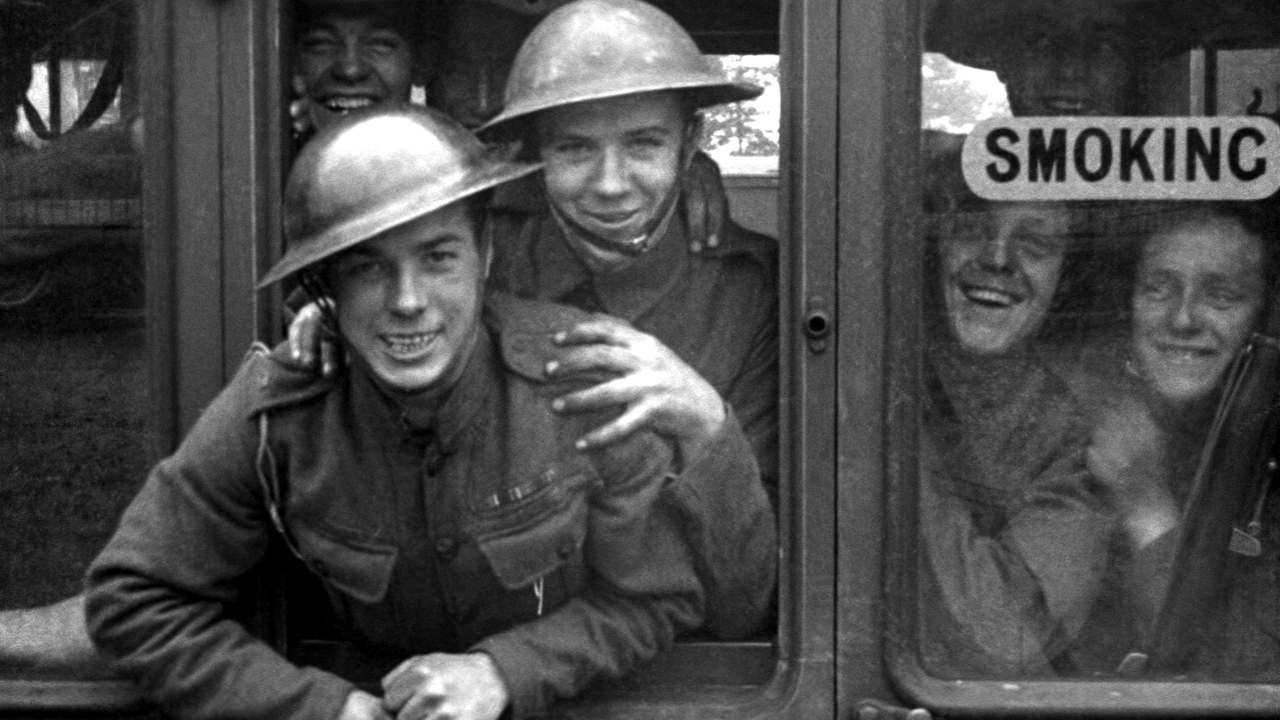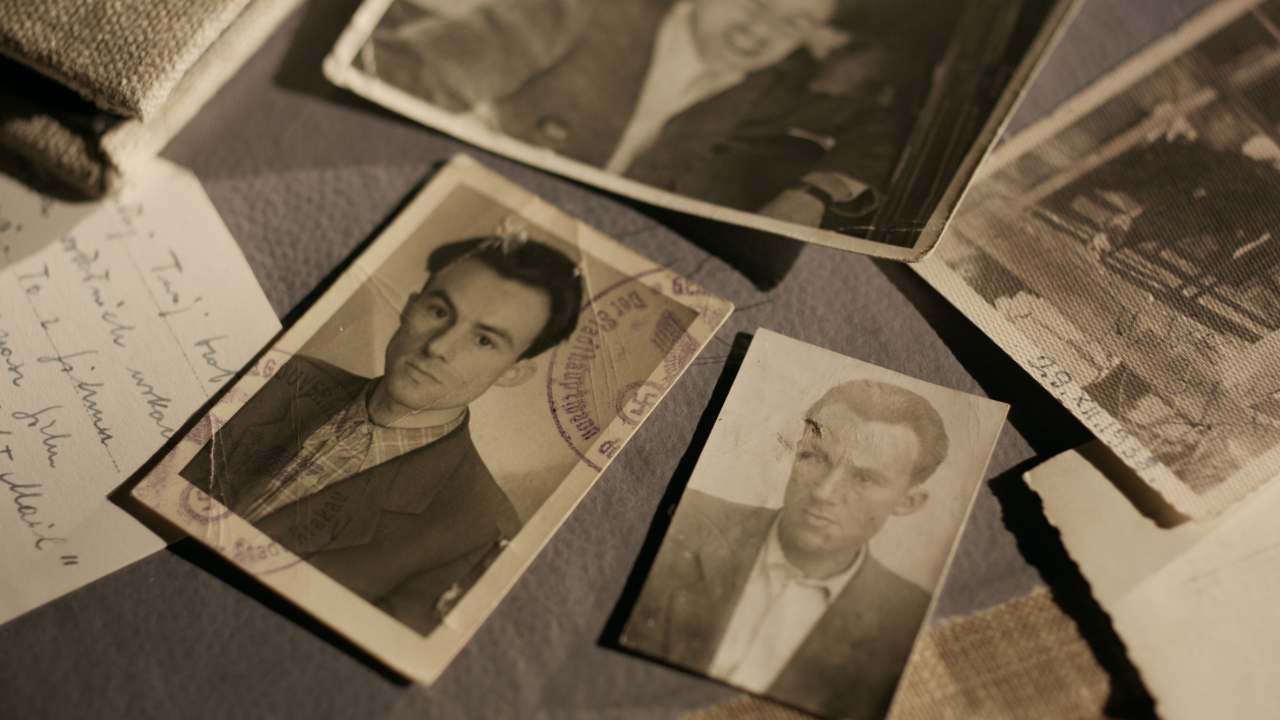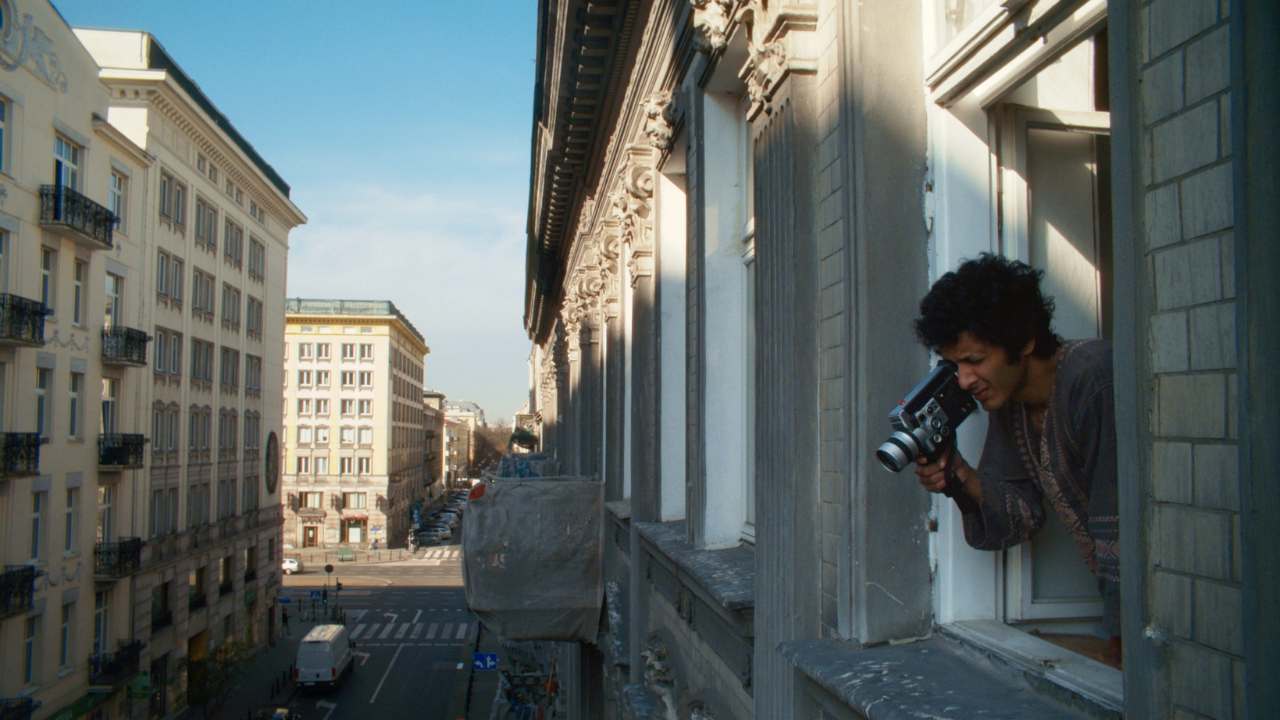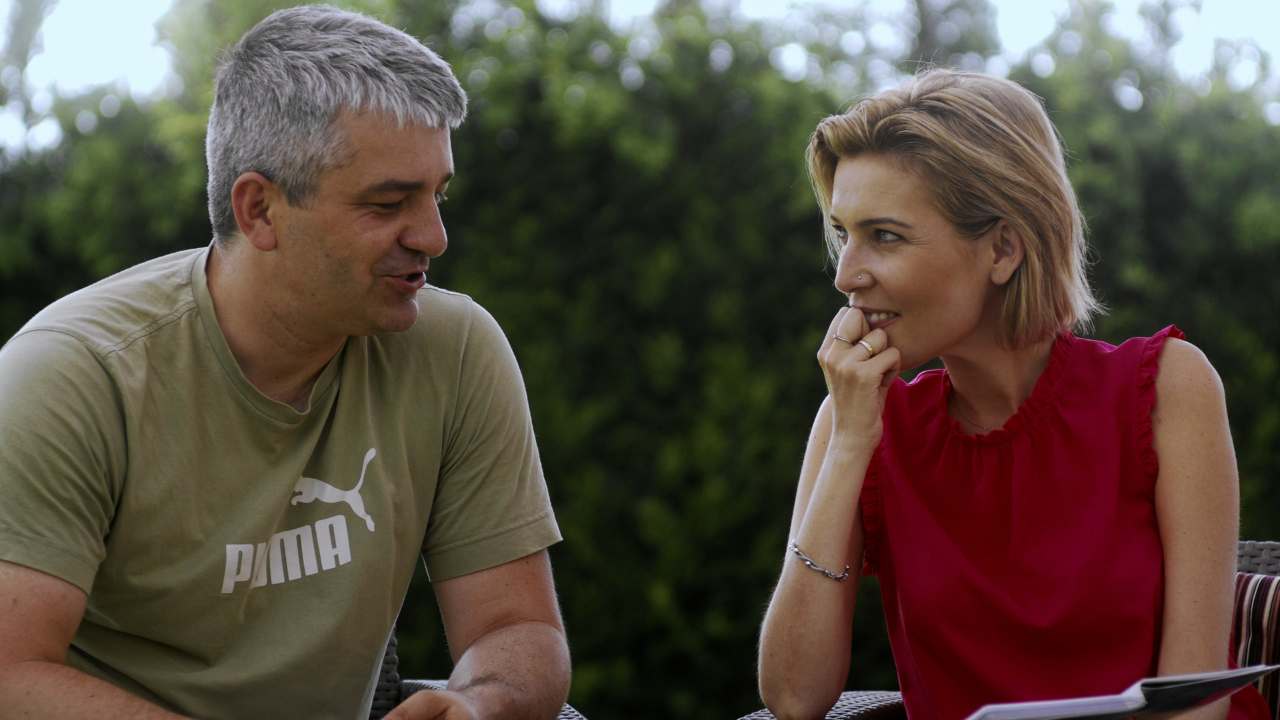A master of the Polish Film School, an inspiring model, a therapist supporting clients in their struggles with stammering, an Indian emigrant filming street life in Warsaw, and an archival journey by train. Five exceptional Polish films are going to be featured in this year’s edition of the immensely popular non-competitive section at the 65th Krakow Film Festival.
“This year’s Polish Documentary Panorama presents five distinct perspectives. Two have been created using archival footage, while three tell contemporary stories. The other division runs differently: we have an essay about the history of Europe, a story about a single street in downtown Warsaw, and finally, a record of human struggles – an artist with their medium, and individuals affected by physical impediments confronting adversity,” comments Krzysztof Gierat, Director of the Krakow Film Festival.
Archival Trains
Can a train serve as a metaphor for human fate? Maciej J. Drygas, one of the most distinguished Polish documentary filmmakers, spent seven years collecting archival materials for his film, which was won the main award at the IDFA festival. Trains is a monumental journey through 20th-century Europe, where railway routes intertwine with the history of wars, migrations, and social transformations. From the euphoria of first travellers, through the transportation of troops and exiles, to journeys home after the war. The entire piece gains an additional dimension through Paweł Szymański’s hypnotic score.


Crafted using unique archival materials, a documentary dedicated to Andrzej Munk, director of unforgettable films such as Man on the Tracks, Eroica, Bad Luck, and Passenger. Michał Bielawski’s documentary offers an original perspective on the artistic achievements of a leading figure of the Polish Film School, illustrated with film excerpts, newsreels, and photographs from the protagonist’s extensive archives. The narrative is bound together by voiceover commentary constructed from interviews with Andrzej Munk himself, as well as his collaborators and friends, guiding us through his life and work. A significant element of The Passenger Andrzej Munk is previously unknown film footage featuring the director, discovered in Polish and foreign archives.
Contemporary Hardships
A street in the centre of Warsaw. Arjun Talwar emigrated to Poland from India over a decade ago and still grapples with a sense of alienation. To overcome the barriers between himself and an anxiety-filled country, he begins filming his neighbours, uncovering a mosaic of hidden stories, shared longings, and fascinating characters: a postman who delivers prescriptions for loneliness alongside letters, and a newcomer from Damascus attempting to recreate his hometown from memory. From the slightly-over-kilometre-long Wilcza Street emerges a portrait of contemporary Europe, and Poland – often perceived as unwelcoming and conservative – gains a tender and humorous portrayal through the lens of the Letters from Wolf Street director.



Aria di Bravura offers a candid and personal account of the world of people who stammer. Although this issue affects as much as 2% of the global population, it rarely appears in films, even documentaries. Małgorzata Goliszewska’s film, shot in Krakow over several years, follows the story of extraordinary therapist Grażyna Malczyk who believes she has discovered a new method to help people overcome stammering. We observe the lives of two of her patients simultaneously – their daily struggles with communicating and their successes in pursuing self-fulfilment despite the challenges they have to face constantly.
The film directed by Krzysztof Rogulski presents an inspiring story about a woman who constantly conquers her own limitations. Agata Roczniak – Poland’s first wheelchair model and President of the Diversum Foundation – proves that life with disability is more than just a battle against adversity. The protagonist of Agatha’s Happiness has spinal muscular atrophy (SMA) yet is also a fulfilled mother and wife. She swims, skydives, travels to the mountains, and works as a model. As part of her foundation, she raises public awareness about the challenges people with various disabilities must face and infects others with her optimism.
Polish Documentary Panorama:
- Aria di Bravura, dir. Małgorzata Goliszewska, Poland, 82’, 2025
- Letters from Wolf Street, dir. Arjun Talwar, Poland, Germany, 97’, 2025
- Passenger Andrzej Munk, dir. Michał Bielawski, Poland, 84’, 2025
- Trains, dir. Maciej J. Drygas, Poland, Lithuania, 80’, 2024
- Agatha’s Happiness, dir. Krzysztof Rogulski, Poland, 71’, 2025
Passes for the 65th Krakow Film Festival are now on sale!
The Krakow Film Festival is on the exclusive list of film events qualifying for the Academy Awards® in short film categories (fiction, animation, documentary) and feature-length documentary, the European Film Awards in the same categories, and serves as a qualifying event for the BAFTA Awards.
The Krakow Film Festival is organised with financial support from the City of Krakow, the Ministry of Culture and National Heritage, the Polish Film Institute, the Creative Europe MEDIA Programme. The Polish Filmmakers Association serves as co-organiser.
The KFF at the Barbican is co-organised by the National Cultural Centre as part of the cultural programme of the Polish Presidency of the Council of the European Union 2025.
The 65th Krakow Film Festival is scheduled to take place from 25 May to 1 June 2025 and online on KFF VOD from 30 May to 15 June.